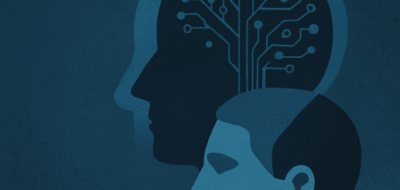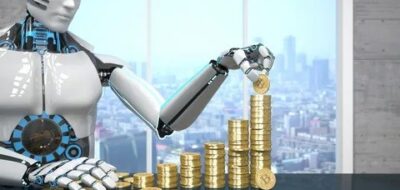My article in Data Driven Investor published 29th of September 2019. Data Driven Investor: In the Digital Economy You are For Sale.
Not that we aren’t, already, benefiting. I can get anywhere by plane within a few hours. Flight has never been so accessible and affordable. But that’s not just about jet engines and the Bernoulli effect. Think how much data needs to be sent, received and processed to make my journey easy. There are online searches, airline advertisements, price comparisons, flight bookings, ticket purchases, credit card transactions, promotions, transfers, connections, and luggage checking and handling. All that adds up to huge data sets – what we call big data.
We tend to forget about all that data as we go about our lives but hardly anyone would be surprised by IDC’s prediction that the digital universe – as measured by the volume of data created, processed, sent and delivered – will reach 180 zettabytes by 2025. That is 180 followed by 21 zeros. Already, the amount of information that surrounds every one of us every day equals the total volume of information that touched an individual over the entire twentieth century.
What does this mean to us now and how will it affect our lives tomorrow? Will we create standards for data use and sharing that protect our privacy? Will we be able to tell credible information from false? As customers and individuals, will we be able to manage our personal data? Will we be able to profit by it?
Can you sell yourself?
Our digital identity is comprised not only of our date of birth, address, phone number and e-mail address but increasingly information about our work, interests, health and finances. Consider digital wallets. These take a variety of forms, from digital cards to applications on our phones. They store our transactions, accounts and often our habits and shopping preferences. They contain a treasury of knowledge. Who is this data shared with? Commonly, the wallet makers, who aggregate and anonymize and subsequently sell them. Do we, the creators and putative owners of this data benefit in any way? Not much, apart from the bargains we may receive in the form of ubiquitous ads.
But innovative service providers may enable consumers to capitalize on the information that today generates profit only for businesses. Turning the tables could produce interesting results.
One company that has taken this approach to the roles of data selling and buying is Datacoup. According to its website, its mission is to change the current model by empowering users to leverage (and profit from) their own data. Datacoup enables its paying customers to create data profiles on its website. Datacoup then makes the information in the profile available to buyers, mainly banks and insurance companies, which pay the individual for access. A profile’s value rises or falls depending on its content.
Is this the tip of a new spear? For this inverted model to spread, we would have to change our habits and perhaps be less inclined to give our data away for free. Major legislative solutions and the willingness of the corporate world would also be necessary.
Internet of Things, or a data revolution
We are flooded with data, valuable and worthless, fake and real, needed and unnecessary. And now even more terabytes of data will be created independently of us through the Internet of Things. Assembling sensors, vehicles, robots, industrial and home appliances into a single digital organism will trip off an avalanche of new information.

Information must cooperate
In order for companies to meet the demands of rapidly-changing markets, boards must abandon their habits and traditional approach to business. In the business world, modern technologies are not mere toys for IT units, which are happy to have managed to persuade decision-makers to buy a specific application, algorithm or neural network. New technologies are vital
You are for sale
There is no disputing the growing value of readily available and processable information sets. To convince those in charge to invest in the latest technology, including artificial-intelligence-based mechanisms, it is sometimes best to resort to the arguments of a futurist. After all, futurists can create business scenarios (use cases) or data usage models that rely on modern technologies, those that, although are still in their infancy today, may well develop and play a huge role in the future. What technologies are those? Think of the possibilities of directly connecting the human brain with machines to eliminate the most ineffective human-machine interface, namely the computer keyboard. Compared to this, virtual and augmented reality (which is so popular today and is taking the entertainment or manufacturing industries by storm) looks like a mere toy.
The drive to simplify
What should businesses do to thrive in an environment dominated by huge data sets? First, they must make their employees realize that the ability to process, collect, share, secure and monetize information or DATA will increasingly affect an organization’s market position and value. Therefore, modern data management is a key challenge faced not just by IT or technology/digital units but by the business itself. It is equally important to train employees to use data purposefully. For now, “machine learning” and “deep learning” are vague concepts in corporate boardrooms. And yet, it is these technologies that will determine the organization’s ability to function. In today’s business world, modern technologies are the only way companies can tell whether their marketing, product or sales strategy is working, and what to do if it’s not.
Link to the article
Related articles:
– Artificial intelligence is a new electricity
– Machine, when you will become closer to me?
– Will a basic income guarantee be necessary when machines take our jobs?
– Can machines tell right from wrong?
– Medicine of the future – computerized health enhancement










Adam
Nicely written. Refreshing to read that at least there are others willing to write as they see it and not follow popular/sanctioned narratives.
Creating bogeymen to cover one’s own failings will not get anyone anywhere. What happened to Lucent, Motorola etc should be learned. Bell Labs (under Nokia) are doing great research (I’ve heard) but what’s coming out of it? Maybe the world needs more collaboration and focus on innovation instead.
A smart guy said its not just enough to share the cake but the smarts are in how to grow the cake.
Zoeba Jones
Pretty bad analogy:
– I still have and can use my data after I give a company a copy of some of it.
– I don’t give away all of my data, or the most important parts of it.
– I’m creating new private data every day.
– I can deliberately change some of my data, after I’ve given copies of it, such as by changing email address or phone number or postal address etc.
– I could generate fake data if wanted to, trying to poison the old data that’s already out there.
SimonMcD
If we were to have AGI, Artificial General Intelligence, with human level capabilities, […] self driving car is certainly a lower bound on human level intelligence [1]. Urmson, a strong proponent of self driving cars says 30 to 50 years.
So what does that say about predictions that AGI is just around the corner? And what does it say about it being an existential threat to humanity any time soon. [2] We have plenty of existential threats to humanity lining up to bash us in the short term, including climate change, plastics in the oceans, and a demographic inversion. If AGI is a long way off then we can not say anything sensible today about what promises or threats [3] it might provide as we need to completely re-engineer our world long before it shows up, and it when it does show up it will be in a world that we can not yet predict.
Check Batin
http://www.federalreserve.gov/releases/h8/current/
$12 trillion. And those guarantees come, rightly, with greater regulation.
And really, by $12 trillion, we mean $1.5 trillion, since those are the only equity losses possible, and while there are more deposits because depositors are covered, the depositors, people with less than $100k in the bank, are the ones enjoying the guarantee in full.
Mac McFisher
We will see more and more deepfakes. The research in GAN architectures is still booming and with very good results.
Autonomous driving, even if not legal, will also boom in research, specially the computer vision side of it (And by extension the actual control the car).
We are also seeing some interest in other types of data (I think it was Facebook that released a paper using deep to resolve mathematical equations), which can open doors to new types of applications in Deep. This is, for me, the most interesting of all as it is an approach that is sometimes forgotten.
Also from the mathematical side there are some papers trying to give us lower/upper bounds to a given architecture (which could lead to more confidence in a given network in a mathematical sense).
Also quantum computing allied with machine learning is making its first steps with some cute papers and algorithms.
Simon GEE
AI should be regulated, but that doesn’t mean it will be….
As much as I love tech and the bare bones of it, I think AI is not a good idea…..Now the kid in me wanted it for years! The adult in me is scared of that shit!
TomHarber
Scarry topic
Tom299
we are all on sale
JohnE3
We are all on sale. Our experience, data, demographics. New economy fuel is data
Adam Spikey
“Luckily” 80/90 yrs after Gramsci/Lenin’s death Facebook still allows pro-commie/neo-Marxist posts and ads…
(to be clear i’m a free speech advocate)
TommyG
Good post
And99rew
Good read